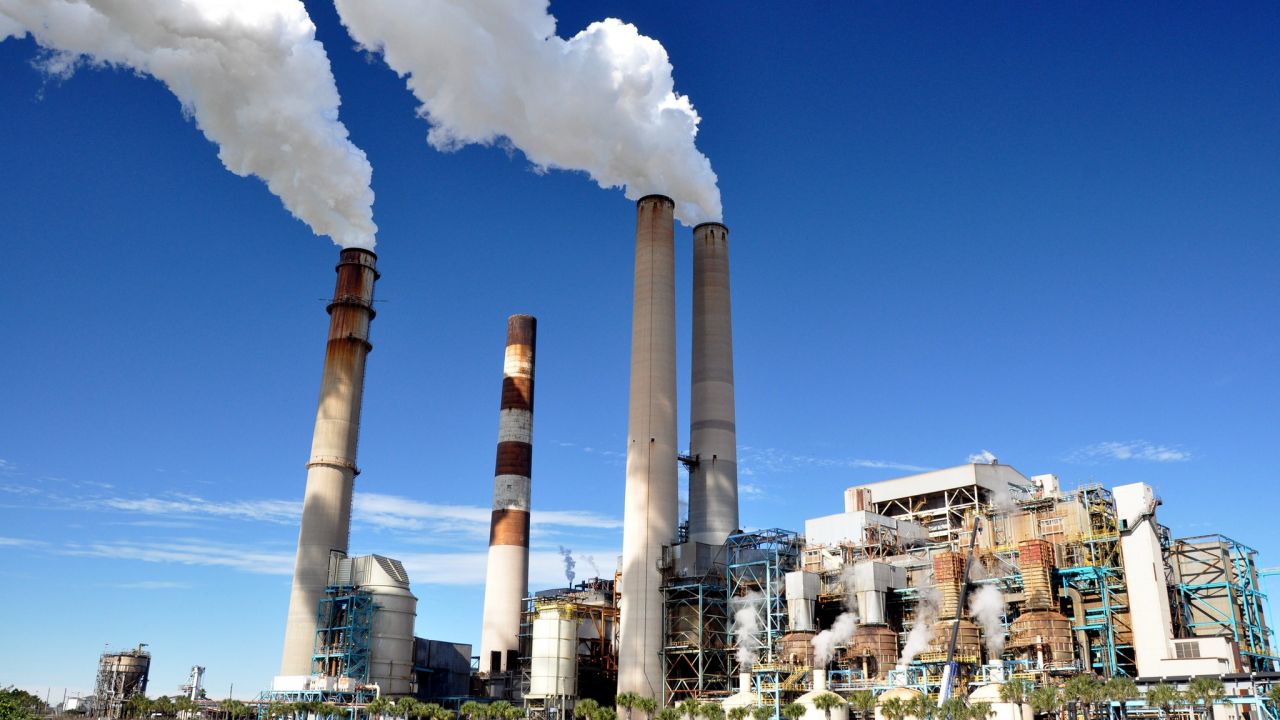
Editor’s Note
On Jan. 19, the day before Donald Trump was inaugurated, the lead headline in The New York Times read: “For Third Year, the Earth in 2016 Set Heat Record; Threat to Society and Nature is Rising — Scale of Shift Startles Scientists.”
The story began:
“Marking another milestone for a changing planet, scientists reported on Wednesday that the Earth reached its highest temperature on record in 2016, trouncing a record set only a year earlier, which beat one set in 2014. It is the first time in the modern era of global warming that temperatures have blown past the previous record three years in a row.”
The very next day, as The Times noted, the United States would inaugurate as president a man “who has called global warming a Chinese plot and vowed to roll back his predecessor’s efforts to cut emissions of heat-trapping gases.”
I clipped the story and pinned it to the bulletin board next to my computer. Since then, President Trump has moved swiftly and relentlessly to stop the federal government’s efforts to reverse global warming. His actions have ranged from removing information about climate change from government websites to forbidding federal employees from talking to the press or public about global warming to naming as head of the Environmental Protection Agency a flunky of the fossil fuel industry who challenges the science of global warming and intends to neuter the EPA’s role in combatting it.
All this despite evidence that “in reality,” as Justin Gillis reported in the Times’ pre-inaugural story, “the Earth is heating up, a point long beyond serious scientific dispute, but one becoming more evident as the records keep falling. Temperatures are heading toward levels that many experts believe will pose a profound threat to both the natural world and to human civilization.”
As the alarm bells keep ringing, Donald Trump and his cronies appear determined to let the Earth burn.
Americans may largely be bamboozled and for the moment paralyzed by this raw display of arrogance and ignorance by a minority-elected president, but around the world the reaction is building against the US for its destructive new climate policies. The ethicist Peter Singer explains why in his radical call for a boycott of the US. Singer is professor of bioethics at Princeton University and laureate professor at the University of Melbourne. His books include Animal Liberation, Practical Ethics, The Ethics of What We Eat (with Jim Mason), Rethinking Life and Death, The Point of View of the Universe, co-authored with Katarzyna de Lazari-Radek, The Most Good You Can Do, Famine, Affluence, and Morality, and most recently, One World Now and Ethics in the Real World. In 2013, he was named one of the world’s three “most influential contemporary thinkers” by the Gottlieb Duttweiler Institute. His essay appears in The Project Syndicate.
— Bill Moyers
This post originally appeared at Project Syndicate.
Boycott America?
By Peter Singer
The catastrophic outcome of last November’s United States presidential election is now clear. President Donald Trump’s indifference to the risk of climate change, and the actions he is taking because of that indifference, are likely to have consequences that dwarf the significance of his executive order on immigration, his nomination of an archconservative to the Supreme Court, and, should he manage to achieve it, his repeal of the Affordable Care Act (“Obamacare”).
With the exception of launching a nuclear war, it is hard to think of anything a US president could do that is liable to harm more people than last month’s order canceling rules issued under former President Barack Obama to freeze the construction of new coal-fired power plants and shut down many old ones. Trump’s order followed his pledge to rescind stricter fuel-efficiency standards for cars and trucks, and his announcement that he wants to slash spending on climate science.
Although Trump did not announce the withdrawal of the US from the Paris climate agreement, his actions are likely to prove incompatible with the US government’s pledge to reduce greenhouse-gas emissions to 26 percent below 2005 levels by 2025. The Paris agreement, signed by 195 countries, is our last real chance of keeping global warming to less than 2ºC above pre-industrial levels. Even 2ºC is too much for the inhabitants of low-lying island states. Many of these states were pleading for a 1.5ºC limit — without which some will disappear beneath the ocean.
Any increase in global temperature greater than 2ºC, scientists agree, risks triggering feedback loops that cause much greater warming and could render large parts of the planet uninhabitable. For example, further warming would release large quantities of methane — a more potent greenhouse gas than carbon dioxide — from thawing Siberian permafrost, leading to more warming, more thawing, and more methane in the atmosphere. Similarly, warming causes the loss of arctic ice, which means that less of the sun’s heat is reflected back rather than being absorbed by the ocean.
During the election campaign, Trump described climate change as a “hoax” perpetrated by the Chinese to destroy American industry. Last month, Scott Pruitt, Trump’s appointee to head the Environmental Protection Agency, said that he did not believe that CO2 is the primary contributor to climate change. He added that “we do not know that yet,” and “we need to continue the review and analysis.”
The American Meteorological Society promptly wrote to Pruitt, saying that it is “indisputable” that CO2 and other greenhouse gases are the primary cause of global warming, and that it is “not familiar with any scientific institution with relevant subject matter expertise that has reached a different conclusion.”
That is true. What many commentators failed to notice, however, is that even if, contrary to all the evidence, we were to accept Pruitt’s statement that “we do not know” whether CO2 is the primary contributor to climate change, the Trump administration’s actions would still be reckless. Unless the probability that CO2 is the primary contributor to climate change is vanishingly small, it is wrong to take chances with the future of our planet and the lives of hundreds of millions of people in order to reduce energy costs for Americans and preserve a few thousand jobs in the coal industry. (In fact, coal jobs are disappearing because of automation and competition from cheaper natural gas, not because of regulations to reduce CO2 emissions.)
Perhaps, though, Trump does not see his policy as reckless because, as he has repeatedly proclaimed, he puts “America first.” And it is indeed America between now and the next election that he puts first, at the expense of Americans’ longer-term interests and the interests of everyone who is not American. In the short term, those who will suffer most from climate change are not Americans, but people living in tropical latitudes, and especially the poor, who will have nowhere to go when rains fail or the heat parches their crops. When sea levels rise, those island-state inhabitants, living just a meter or two above sea level, will be the first to be driven off their land, followed by tens of millions of people farming small plots in fertile delta regions in Bangladesh, Southeast Asia, and Egypt.
The Paris climate agreement has no mechanism for sanctioning countries that fail to fulfill their pledges. The idea is that such countries will be “named and shamed.” Well before Trump was elected president, however, when the notorious video in which he boasted of groping women became public, it was obvious that he is immune to shame. What, then, can other countries, and individuals, whether in the US or beyond its borders, do about the fact that Trump is jeopardizing the future of us all, for many generations to come?
If the US uses the cheapest available fuels to produce energy, irrespective of the harm that burning those fuels does to others, it is giving its companies an unfair advantage over those elsewhere that are making a good-faith effort to reduce their greenhouse-gas emissions and meet their Paris pledges. That should be enough for the World Trade Organization to allow other countries to erect trade barriers against US goods. If, however, the WTO is not brave enough to take that step, the remedy is in the hands of foreign consumers, who should show the Trump administration what they think of its policies by choosing not to buy American.
A boycott is a blunt instrument that would, regrettably, harm many US workers who did not vote for Trump and are in no way responsible for his policies. But with so much at stake, and such limited means of changing Trump’s policies, what else is there to do?




